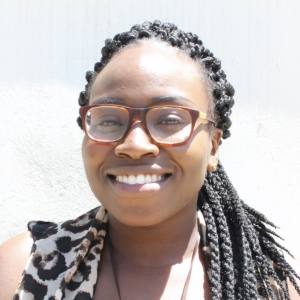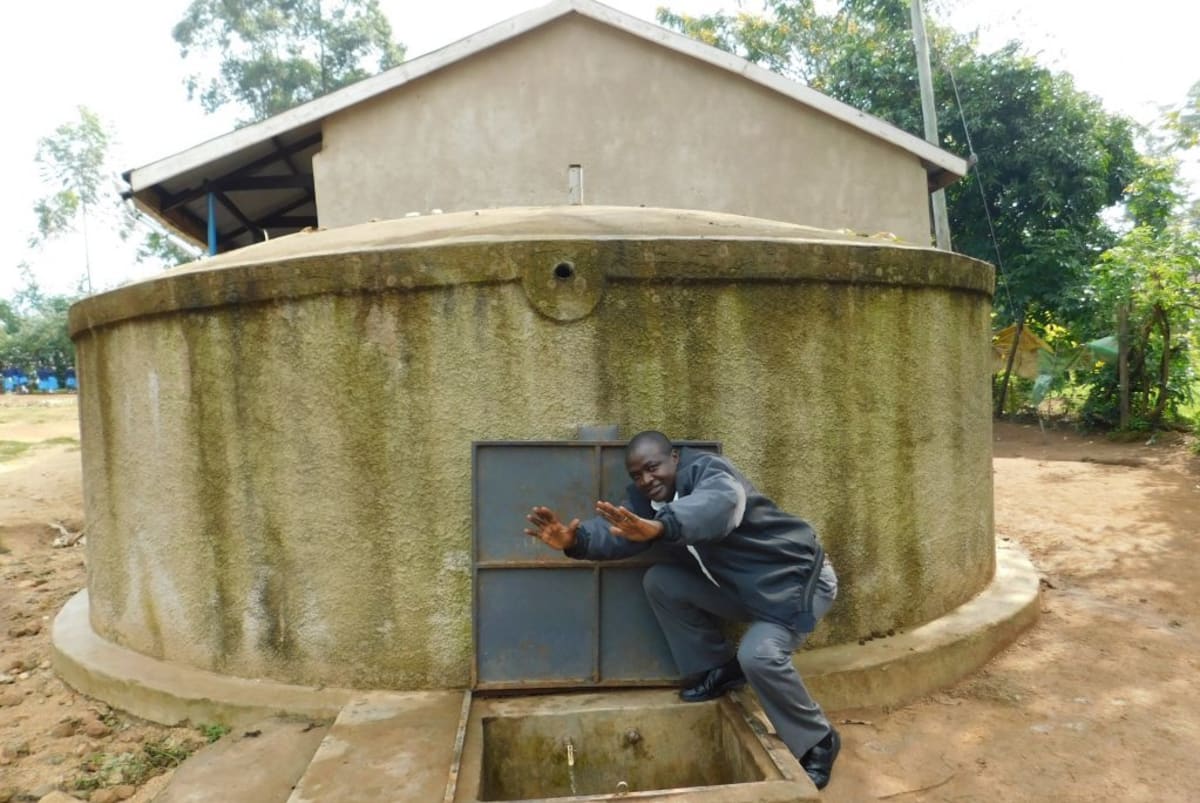Emukangu Primary School is a junior school trying to provide easy access to education for the children of Emukangu Village. The school is currently training a pioneer class that will be the first class to take part in the Kenya National Examinations.
A normal day in this school starts at 6am when the pupils start coming to school. The class seven pupils who are the eldest report early and start their morning preps. The pupils later begin the cleaning session, where they clean different areas of their school using the water they fetched from the spring.
They then go for lessons of the day, following the set timetable for each particular class. They have breaks in the course of the lessons. The early childhood development class leaves for home early during lunch break and report back to school the following day. The day usually ends at 5pm, with some pupils going for games while others opt to do clean their classrooms.
Water
The pupils fetch water from an unprotected spring and a neighbor's well. Water from the spring is fetched using small jerrycans and is for cleaning purposes only. The spring is unprotected, therefore the water is not clean.
For drinking and cooking, the pupils fetch water from a neighbor's homestead with whom they share a fence. The well has no pump, but instead, a bucket tied to a rope is thrown inside the hole and the children have to pull it up when full, then pour the water into the smaller jerrycans they have.
"At the moment water is also a huge challenge, having to depend on a good neighbor to get water for drinking and cooking is not easy. We, therefore, use water with limits, for urgent purposes, washing hands and drinking water is not a concern for many pupils, they just survive," Mrs. Caroline Alivza, the school cook, said.
Cooking water is stored in big pots in the kitchen while the water fetched at the spring is used up immediately for cleaning, when more is required the pupils have to go back for another trip to the spring.
A safe water shortage for this school is bad news for the pupils as they will have to go to the spring on several trips in order to have enough water for use for a whole day in school.
Sanitation
The pupils do not wash their hands after using the toilet, as the only handwashing station available in the school is used by the teachers and the Early Childhood Development class.
The girls have only three latrines, which two have doors while the other one has no door. The latrines are not badly off, although they are smelly. While the boys have two plastic mobile toilets and a urinal made of iron.
"I have worked in this school for almost six years, the health situation is not so good for instance last year the school received a closure notice from the ministry of health due to poor sanitation platforms," Mrs. Alivza said.
"The headteacher was, however, able to work with the parents towards constructing the three pit latrines currently in use by the girls. Before that, they would share the mud-thatched pit latrines with the teachers.
The Kenya Red Cross society was also able to donate two plastic mobile toilets that are now in use by the boys. The mobile toilets are placed on top of a dug pit. When the pit is full, they move the toilets to the next empty pit. They are also very dirty, and smelly, if not installed properly they can easily topple over with someone inside.
The school also has three other toilets that are not in use, since they are not finished. Work started on the new latrines but they never completed the project. These toilets are now lying idle in the school compound.
The school administration, despite the challenges they face on a daily basis, is very keen on maintaining better good hygiene and sanitation standards.
Here’s what we’re going to do about it:
Training
Training will be held for two days. The facilitator will use PHAST (participatory hygiene and sanitation transformation), ABCD (asset-based community development), CTC (child to child), lectures, group discussions, and handouts to teach health topics and ways to promote good practices within the school. The CTC method will prepare students to lead other students into healthy habits, as well as kickstart a CTC club for the school.
Handwashing Stations
This CTC club will oversee the new facilities, such as handwashing stations, and make sure they are kept clean and in working condition. The two handwashing stations will be delivered to the school, and the club will fill them with water on a daily basis and make sure there is always a cleaning agent such as soap or ash.
VIP Latrines
Two triple-door latrines will be constructed with local materials that the school will help gather. Three doors will serve the girls while the other three serve the boys. And with a new source of water on school grounds, students and staff should have enough to keep these new latrines clean.
Rainwater Catchment Tank
A 50,000-liter rainwater catchment tank will help alleviate the water crisis at this school. The school will also help gather the needed materials such as sand, rocks, and water from the spring for mixing cement. Once finished, this tank can begin catching rainfall that will be used by the school’s students and staff.
We and the school strongly believe that with this assistance, standards will significantly improve. These higher standards will translate to better academic performance!
This project is a part of our shared program with Western Water And Sanitation Forum (WEWASAFO). Our team is pleased to provide the reports for this project (edited for readability) thanks to the hard work of our friends in Kenya.



 Rehabilitation Project
Rehabilitation Project





































